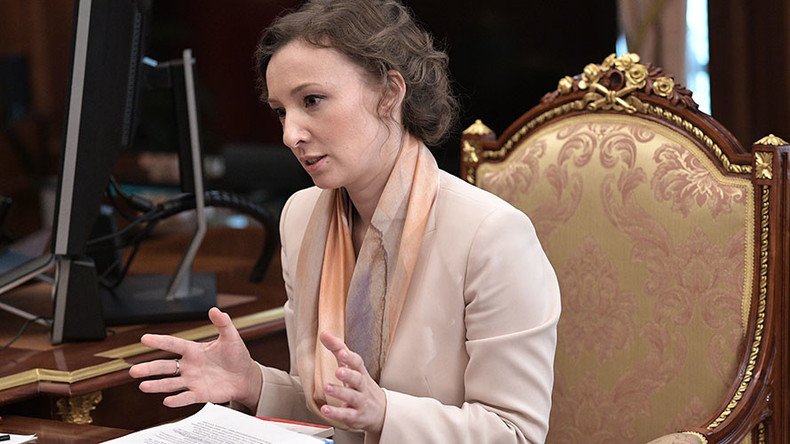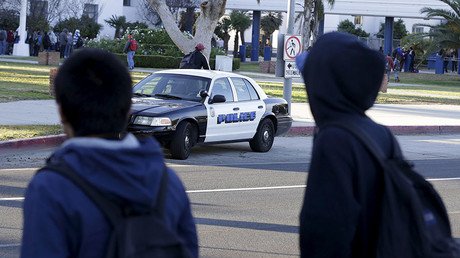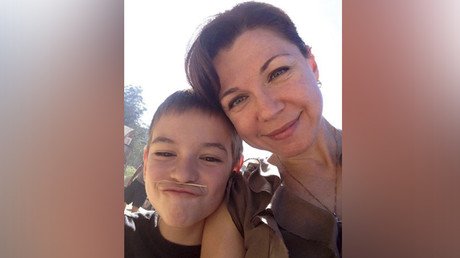US withholding data on fate of orphaned Russian-American boy – children's rights commissioner

The US is not providing Russia with any information on a 9-year-old boy who lost both of his parents in a series of tragic events last week, Anna Kuznetsova, the Children's Rights Commissioner for the Russian president has said.
All attempts by Russian relatives of the orphaned boy, Daniel Morozov, who has dual citizenship, to make contact with him have so far been futile, Kuznetsova said. She added that the relatives of the boy’s father, including his uncle, have already arrived in the US but were unable to meet with him or even obtain any information about him.
On August 22, the LAPD shot and killed the boy’s father, Konstantin Morozov, 48, who was suspected of murdering his estranged wife and the boy’s mother, Natalia Morozova. She was found dead in the town of Santa Maria on the evening of August 21.
Media reports said Morozov was also suspected of the abduction of his son Daniel, who was with him but unharmed in the incident. Daniel was subsequently placed into the protective custody of the Department of Family and Children Services in Los Angeles County.
In Monday's statement, Kuznetsova went on to say that the Office of the Children's Rights Commissioner also “closely cooperates with all the relevant structures in this matter,” including the Russian consulate general in Los Angeles, and is doing its best to help the boy and his relatives. In particular, it is assisting the relatives of the boy’s mother, including his grandmother and aunt, to travel to the US.
US authorities, however, are not providing any information concerning the boy, not even to the Russian consulate general. “The situation is additionally complicated by the fact that the US treats this issue as its internal matter as the boy possesses US citizenship,” Kuznetsova told Russian media.
The Children's Rights Commissioner said Russian officials does not have any information about the whereabouts of the boy and assumed that he could be either with a foster family or in an orphanage in Santa Barbara.
“We need to do our best to find out what happened to the boy, where he is and what his condition is,” she said, adding that it is also important to understand his own wishes and intentions to develop the best strategy to help him.
Kuznetsova further said that even a US citizen, who was a boyfriend of the boy’s mother for the last year and had “warm relations” with the boy himself, also could not contact the orphaned boy.
Following the tragic episode, the boy’s uncle, Andrey Morozov, personally addressed president Donald Trump in a letter asking the US leader to help him win custody of the child. He also immediately flew to Los Angeles to take care of Daniel, only to be denied access to the boy by Child Protective Services (CPS).
Meanwhile, the boy’s grandmother as well as his mother’s brother and sister are also heading to the US to contest custody, according to Olga Avdeeva, Russia's regional children’s ombudsman.
The Russian Consulate in San Francisco said the boy’s custody will have to be decided in an American court.
Children’s rights have been a tense issue in relations between Russia and the US for a long period of time.
Cases of Russian children suffering at the hands of their adoptive US parents have been repeatedly reported by the media. According to various media reports, some 20 adopted Russian children have died as a result of the actions of their adoptive parents in the US between 1996 and 2013.
In 2012, Russian lawmakers passed the so-called Dima Yakovlev Law that forbids the adoption of Russian orphans by US citizens or by proxy of US organizations. The bill was named after a Russian boy who died in 2008 as a result of being left inside a car on a hot day by his adoptive American parents.
In 2013, Russian authorities imposed rules that would only allow cross-border adoptions to countries that had signed bilateral agreements with Russia. In 2014, Russia also banned changing the citizenship of adopted Russian children over fears that NGOs specializing in adoptions might send children to the United States via third countries.
The 2012 law provoked a wave of criticism in the West. In January 2017, the European Court of Human Rights (ECHR) released a press statement saying that the legislation unlawfully discriminates against prospective parents.
It also ordered the Russian government to pay €75,000 ($80,000) in compensation to 45 prospective parents who filed lawsuits, and €13,600 in court expenses. In response, Russian Senator, Yelena Mizulina, told reporters the ECHR’s decision constitutes blatant interference in internal Russian affairs. She also denounced it as “discrimination” against children’s rights.














